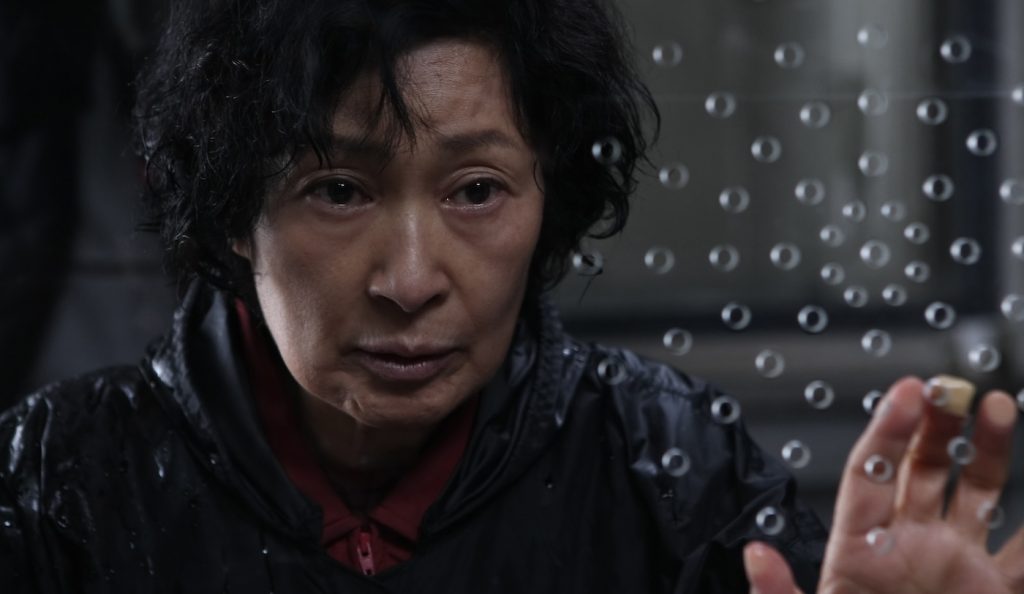Composer and Virtuoso Guitarist Byeong Woo Lee on Scoring Films For Bong Joon Ho
Byeong Woo Lee is a man of many talents. He’s a virtuoso guitarist and guitar designer, a successful pop musician, a graphic designer, and an educator. As a classical guitarist, he’s performed with the Peabody Symphony Orchestra, Brussels Philharmonic, Korean Symphony, and more. After stints in Vienna and Seoul, he moved to Baltimore, Maryland, where he continued his ongoing study into musical traditions at Johns Hopkins’ Peabody Conservatory. It was there that he broadened his musical aperture to include film composing.
Now, he’s also a world-class composer, having worked on some of Korea’s most beloved films with some of its most revered filmmakers, including Kim Jee Woon’s A Tale of Two Sisters, Joon-ik Lee’s The King and the Clown, JK Youn’s Ode to My Father, and Jae-rim Han’s The Face Reader. Yet it’s his scores for multiple Oscar winner Bong Joon Ho that have arguably brought him the most attention—including the director’s 2006 sci-fi monster romp The Host and his 2009 noir masterpiece Mother.
Ahead of Lee’s performance at Town Hall in New York, followed by a screening of Mother with a live score, we spoke to the endlessly inventive guitarist and composer about collaborating with one of cinema’s most daring filmmakers, how he adapts his scores for various genres and more.
Can you describe the conversations you had with Bong Joon Ho about Mother before you started your work on the score? For example, did he ask for specific musical cues for particular scenes or moments?
Bong Joon-ho’s work was phenomenal. He imposed no restrictions on me as the composer. However, there was a reference piece of music used during the filming of the movie’s iconic opening scene, where the mother dances in the field, and I composed it to match the tempo of that music.
Were you inspired or informed by any of his previous work or any other films, whether they’re noir detective films or another genre entirely?
For me, every film score I work on begins with a blank canvas. My musical background spans from pop to classical to contemporary music, all played on the guitar. So, it’s relatively easy for me to adapt to any genre because of my experiences.
Do you have a favorite moment in Mother in which you feel like your music is most effective? How about for The Host?
I love all the music in the movie Mother. People have remarked how the music in the serious scene, where detectives recreate the crime scene, wasn’t serious, which made it memorable. In The Host, I composed a comical piece for a serious escape scene, which gave director Bong Joon-ho some pause.
I’m curious how you came up with the contrasting melodies in your work.
Bong Joon-ho’s films are characterized by their heavy subject matter, but he has a special gift for putting things about the absurdity of life into situations that make us laugh. For example, there is an ironic scene in Mother where a tragic event in the neighborhood becomes a kind of circus for the spectators because it is the first time something dramatic has happened there in a long time. When I thought of this unique development, I had to think of a completely different kind of music, not the usual heavy, tense music of serious situations.

How do you deploy your specific musical talents, including your guitar skills, to a cinematic landscape?
The instrument I know best is the guitar. But to me, it doesn’t matter which instrument it is as long as there are dynamics, phrasing, and articulation. If it sounds different from other music, that’s the best.
Is there any specific element of scoring films you find most compelling or enjoyable? Any parts of it that you find most challenging, as compared to your other work as a multi-hyphenate musician?
The most interesting thing about film music is that there are no correct answers. The hardest part of the job is having to communicate with others within a given time frame. Today, they might say the music is good, but by tomorrow, the film could be edited differently, requiring new music. Yet, over time, the difficulties are always forgotten, and only the happy memories remain.
How do you feel now that you’re coming to New York and having your Town Hall debut?
I’m really excited and a bit overwhelmed at the idea of debuting at Town Hall on April 20th, to be in that space with 100 years of musical history in the air. It’s going to be very special. We are actually performing new music for the Mother live score, music I wrote that never made it into the film!
For those in the New York City area, tickets for the Town Hall event can be found here.



